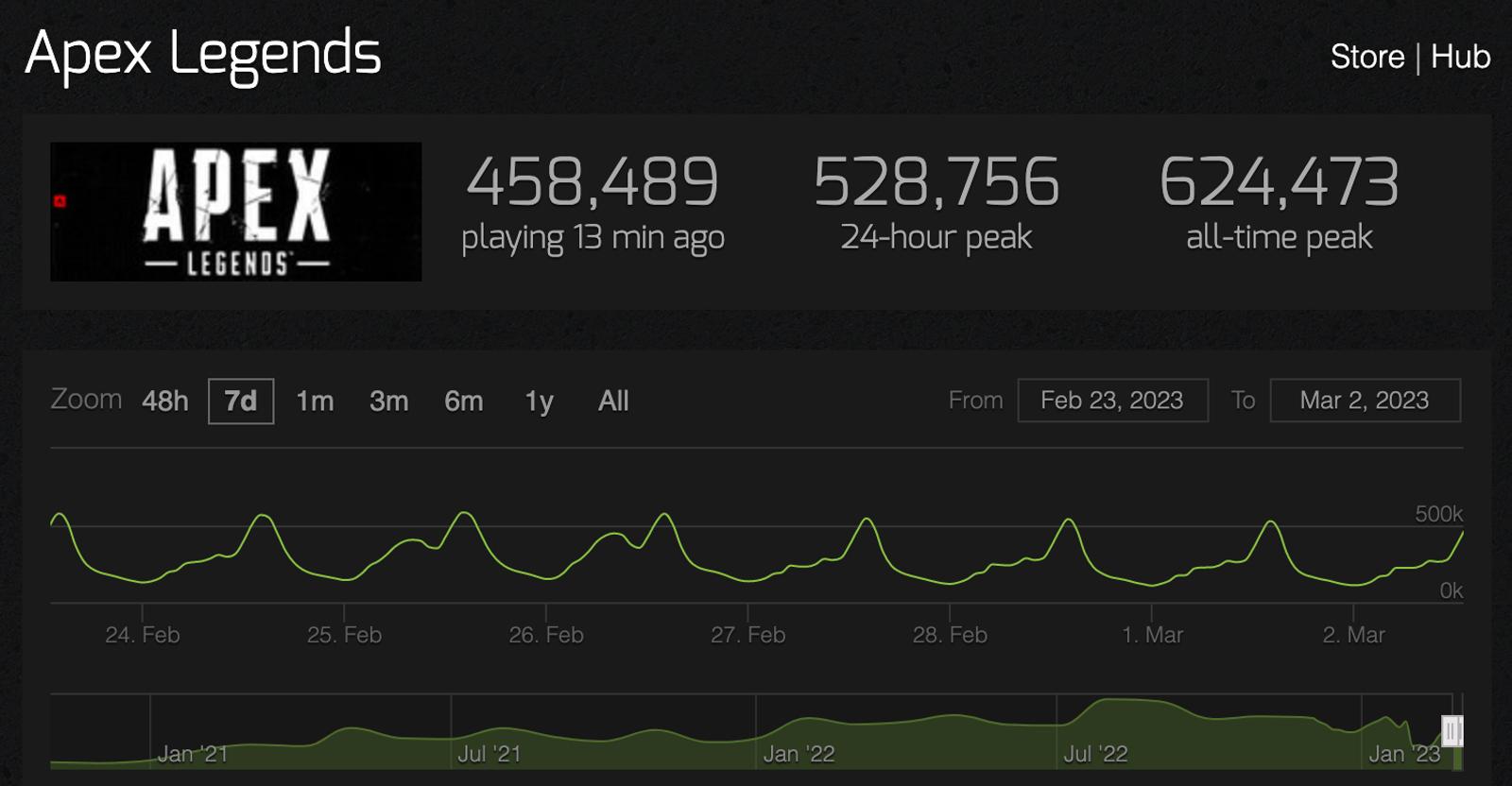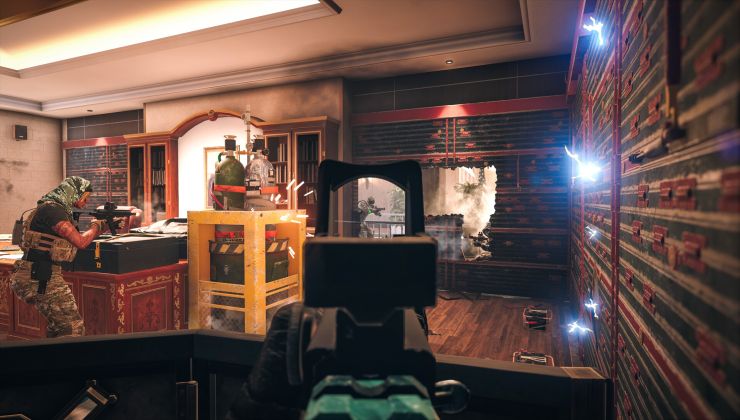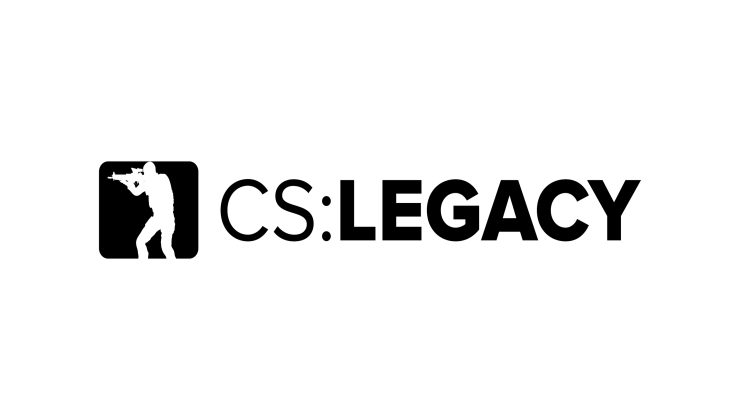As a little PSA word of warning, it seems EA / Respawn have begun another little ban wave or they've tweaked something in their anti-cheat that Linux / Steam Deck players are getting caught in for Apex Legends.
This issue happened back in late February into early March this year, with a mixture of mostly desktop Linux players with a few who played on Steam Deck getting banned from Apex Legends. EA eventually overturned the bans, but it seems it has begun happening once again.
Various reports have begun appearing across Reddit and a fresh post on the EA Forum with users detailing their bans.
Apex Legends is currently Steam Deck Verified and their Easy Anti-Cheat is supposed to be supported on Linux, so hopefully the bans will once again be overturned.
When you play games with anti-cheat regardless of the support status on Steam Deck and desktop Linux, there's always the chance even if you're a legitimate player that you'll somehow get caught up in a ban wave after doing nothing wrong. False positives are a thing that just happens — sadly. Linux isn't alone is this, various games on Windows over the years have had the same issue it just comes with the territory of online gaming.
If we get any updates on this the article will be updated. Feel free to jump into our Discord to get regular updates.
Update: 21/08/23 10:54 UTC - EA support have been replying to lots of the people banned, simply stating the ban is sticking. The emails being sent seem to be pretty standard: "We got your note and did a full investigation of your account. After reviewing your case, we determined that we took the correct action in accordance with EA policies and procedures.".
They've also merged the original and new forum posts into one and the amount of people mentioning they've been banned continues to grow. I've reached out to EA Press for a statement and info on what's going on.
Update: 22/08/23 12:53 UTC - People have been asking EA to look again at their bans, and EA simply email back saying:
"We have received your most recent correspondence expressing concerns about the action that was taken on your account.
After thoroughly investigating your account and concern, we again found that we actioned your account correctly after it was found to have violated our User Agreement. We will also be unable to provide any details regarding our internal procedures.
Due to this violation, we will not remove the sanction that was applied to your account.
You can review the full User Agreement at http://tos.ea.com/legalapp/WEBTERMS/US/en/PC/
After completing two full investigations into your complaint, we consider this matter closed."
EA have not yet replied to my email for a statement on it and the bans continue happening. I've sent an email to a different EA contact today to try and pry a statement from EA on this.
Update: 23/08/23 11:04 UTC - A Respawn team member mentioned on Reddit that "The team is investigating this and we appreciate the continued reports in the forums as it gives us added details to work with.". EA still didn't reply to my emails.
When you play games with anti-cheat regardless of the support status on Steam Deck and desktop Linux, there's always the chance even if you're a legitimate player that you'll somehow get caught up in a ban wave after doing nothing wrong. False positives are a thing that just happens — sadly. Linux isn't alone is this, various games on Windows over the years have had the same issue it just comes with the territory of online gaming.
Good thing I'm not playing that kinda game anymore.
Losing your account with all the things you spent time and maybe even real money on out of the blue without even doing anything wrong looks absolutely unacceptable to me.
VAC can be so loose because Valve is adamant about reducing false positives.Basically... this.When you play games with anti-cheat regardless of the support status on Steam Deck and desktop Linux, there's always the chance even if you're a legitimate player that you'll somehow get caught up in a ban wave after doing nothing wrong. False positives are a thing that just happens — sadly. Linux isn't alone is this, various games on Windows over the years have had the same issue it just comes with the territory of online gaming.
Good thing I'm not playing that kinda game anymore.
Losing your account with all the things you spent time and maybe even real money on out of the blue without even doing anything wrong looks absolutely unacceptable to me.
In reality, VAC is even scarier because other than the VAC stain staying on the profile for 7 years (or forever, I don't remember) on the profile, the entire inventory for the game becomes untradable. However, it's a much weaker form of anticheat and I haven't heard false positives arising, like, ever.
However, peppering up existing anticheat like EA does is just absurd.
Losing your account with all the things you spent time and maybe even real money on out of the blue without even doing anything wrong looks absolutely unacceptable to me.
Soo true. In the age of the internet as a "new normal" this is not okay.
That's why I reserve my money for games like -- Baldur's Gate 3 -- even bought a gift copy.
Ironic that a game with gate in the name is the opposite of gatekeepers having contempt for their customers.
There's a lot of fish in the steam.
*taking cover*
Last edited by aufkrawall on 20 Aug 2023 at 6:56 pm UTC
I find it irresponsible from Valve to market this game towards Steam Deck users, practically exposing their own customers to the threat of having their account banned permanently.

On Apex, cheaters are clearly a plague: they appear massively every "scholar-holiday" periods: last week I saw so many players with speed and auto-aim hacks, and we can't any more report.
With a player reported x times in few minutes, and a handful of real human behind screens (one by worldwide area) to watch and ban cheaters, it should be fast for a real human to check by looking 1 minute this player if true or false positive.
The true point is that they are no human behind the screen, and counting on only-automated scripts can't be adapted to such a dynamical human process as cheating is.
Honestly, duplicating kernel driver anti-cheat functionality in user-space is even dumber than invasive kernel-mode anti-cheat. Probably not very popular opinion on a site that's dedicated to Linux gaming, but I wonder why it even is semi-supported by some games at all. I really don's see why Windows users should be fine with a game dev making exceptions for less intrusive anti-cheat for a tiny minority of players.
I'd tend to agree with you. Although the functionality is very much questionable as can be seen by this:
On Apex, cheaters are clearly a plague: they appear massively every "scholar-holiday" periods: last week I saw so many players with speed and auto-aim hacks, and we can't any more report.
With a player reported x times in few minutes, and a handful of real human behind screens (one by worldwide area) to watch and ban cheaters, it should be fast for a real human to check by looking 1 minute this player if true or false positive.
The true point is that they are no human behind the screen, and counting on only-automated scripts can't be adapted to such a dynamical human process as cheating is.
This clearly demonstrates that the idea of client side anti-cheat is a problem. It is used as a replacement for proper server side checking because it's a cheap solution. EAC only seems to catch the low hanging fruit with a bunch of false positives to go with it (not just the Linux players). Proper server support for cheat prevention is still essential. And actual humans to check behaviour is expensive, so I don't see that happening in the current corporate climate where "alternatives" are so much cheaper.
This clearly demonstrates that the idea of client side anti-cheat is a problem. It is used as a replacement for proper server side checking because it's a cheap solution. EAC only seems to catch the low hanging fruit with a bunch of false positives to go with it (not just the Linux players).
Yes, the server anti-cheat would be a plus, and I hope they already have (for instance, checking for a max speed won't be of some difficulties as they had a reward for making some distance per game for octane, and identifying speed hack thus should be possible).
But paying ~5 guys worldwide (for sure in cheap country with decent computer competences and a good equipment, like india for asia area, Romania or marocco for europe & africa areas, etc.) not 24/24 on each area and considering that you clearly have peaks in the evening in each area, and considering that the dissuasion (especially if a bit random over time) won't be that expensive, and that EA will anyway have to pay people to treat complaining on forum/assistance and on the social networks in terms of communication.
Remember we are talking about a company declaring his income on Apex to be $160 to 180 million $ per year (even if complaining that the increase was not as much as they expected last year, but in a finite world, increasing the expected income from a game as a limit also! and doesn't decrease the net income from this game....I bet most companies would love to still have that yearly net income on a finished game, marginally developed, for 13 years!). And remember that EA makes 7.500 billion $ per year while Apex is one of their top-3 horsepower games and one of their showcase product.
So no paying real human behind the screen is just a short term choice for greedy (as concerning a really small percentage of the income) and ideological goals intended to satisfy the shareholders, rather than intended to the quality of the product and to satisfy and retain the consumers.
account info>checks if banned>thats pretty much it
edit: I'm saying this but I won't be surprised it's a bot just doing the same basic check on repeat no matter how many times you "contact" them
Last edited by based on 22 Aug 2023 at 1:11 pm UTC
Just an update. My third appeal has been declined with no information on why.
Not surprising coming from EA. I seriously doubt that any human will ever be assigned to your case or appeals process. I say this bc I have a good grasp on how egregious EA customer and product support has always been with these gangsters at EA- hell they don't even bother to finish the PS5 versions of their games, I know this because I own Fifa 23 on PS5 and it has a smattering of persistent bugs that EA will not even acknowledge, let alone try to fix. The most annoying bug for me is the fact that your user settings are not preserved across game reboots, requiring you to start from the very beginning with all the EULA privacy policy agreement nonsense (that nobody has actually read- ever), followed by some obscure sign in to some EA Play activity launcher, whereby it assures me that I am currently signed in and "appearing offline", albeit I'm not entirely certain to whom, as I've never intentionally used the additional EA Spyware, as it has absolutely zero utility for me personally, and only serves to draw out an already marginally lengthy launch process. I could go on for ages listing the number of persistent bugs plaguing one of their historical best selling titles, but it would do nothing to positively motivate the clowns running the show at the EA dev house. Furthermore, it’s my understanding, that Electronic Arts is a gruesome company to work for, as their employees are treated more like slaves than highly talented software engineers or programmers. I’ll stop ranting with that, and wish you the best of luck dealing with the EAsshats 😤.









 How to set, change and reset your SteamOS / Steam Deck desktop sudo password
How to set, change and reset your SteamOS / Steam Deck desktop sudo password How to set up Decky Loader on Steam Deck / SteamOS for easy plugins
How to set up Decky Loader on Steam Deck / SteamOS for easy plugins
See more from me